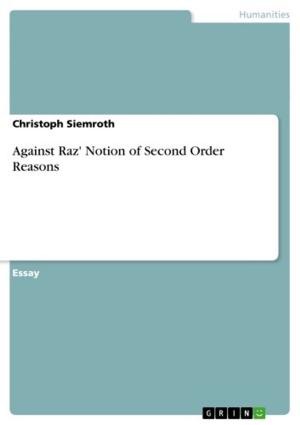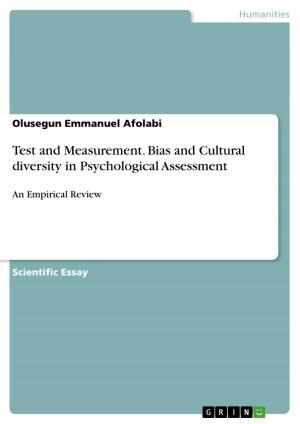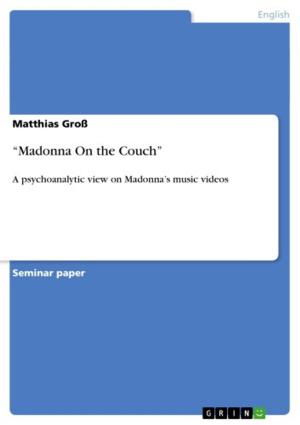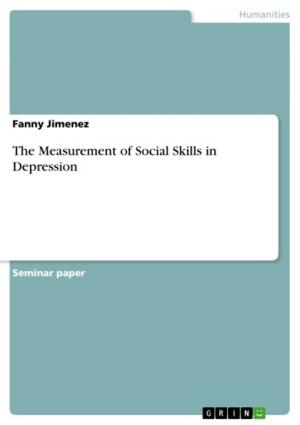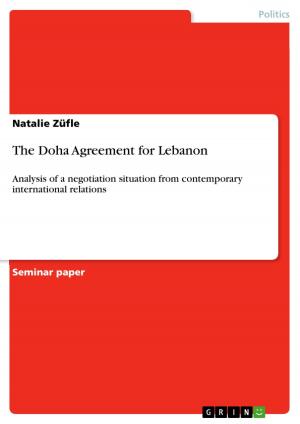A narrow boundary and a narrow understanding of morality
Nonfiction, Religion & Spirituality, Philosophy| Author: | Stefan Krauss | ISBN: | 9783638299893 |
| Publisher: | GRIN Publishing | Publication: | August 13, 2004 |
| Imprint: | GRIN Publishing | Language: | English |
| Author: | Stefan Krauss |
| ISBN: | 9783638299893 |
| Publisher: | GRIN Publishing |
| Publication: | August 13, 2004 |
| Imprint: | GRIN Publishing |
| Language: | English |
Essay from the year 2004 in the subject Philosophy - Practical (Ethics, Aesthetics, Culture, Nature, Right, ...), grade: HD (High Distinction), Murdoch University (Institute for Sustainability and Technology Policy), course: Environmental Ethics, language: English, abstract: A common moral attitude is that human beings, and only human beings, are members of the moral community and therefore humans are the only entities that are considered morally. In this essay, I will describe PETER SINGER's argument that includes sentient beings in the moral community (ii; iii). Against this background I will criticize his approach and show some alternative readings of the argument in order to expand the moral community further (iv; v). PETER SINGER was born in 1946 and became Professor of Philosophy in 1977 at Monash University, Melbourne. With his influential essay 'Animal Liberation' (1974) and the book of the same name published one year later, he counts undoubtedly as a pioneer of the animal rights movement and animal ethics.
Essay from the year 2004 in the subject Philosophy - Practical (Ethics, Aesthetics, Culture, Nature, Right, ...), grade: HD (High Distinction), Murdoch University (Institute for Sustainability and Technology Policy), course: Environmental Ethics, language: English, abstract: A common moral attitude is that human beings, and only human beings, are members of the moral community and therefore humans are the only entities that are considered morally. In this essay, I will describe PETER SINGER's argument that includes sentient beings in the moral community (ii; iii). Against this background I will criticize his approach and show some alternative readings of the argument in order to expand the moral community further (iv; v). PETER SINGER was born in 1946 and became Professor of Philosophy in 1977 at Monash University, Melbourne. With his influential essay 'Animal Liberation' (1974) and the book of the same name published one year later, he counts undoubtedly as a pioneer of the animal rights movement and animal ethics.

